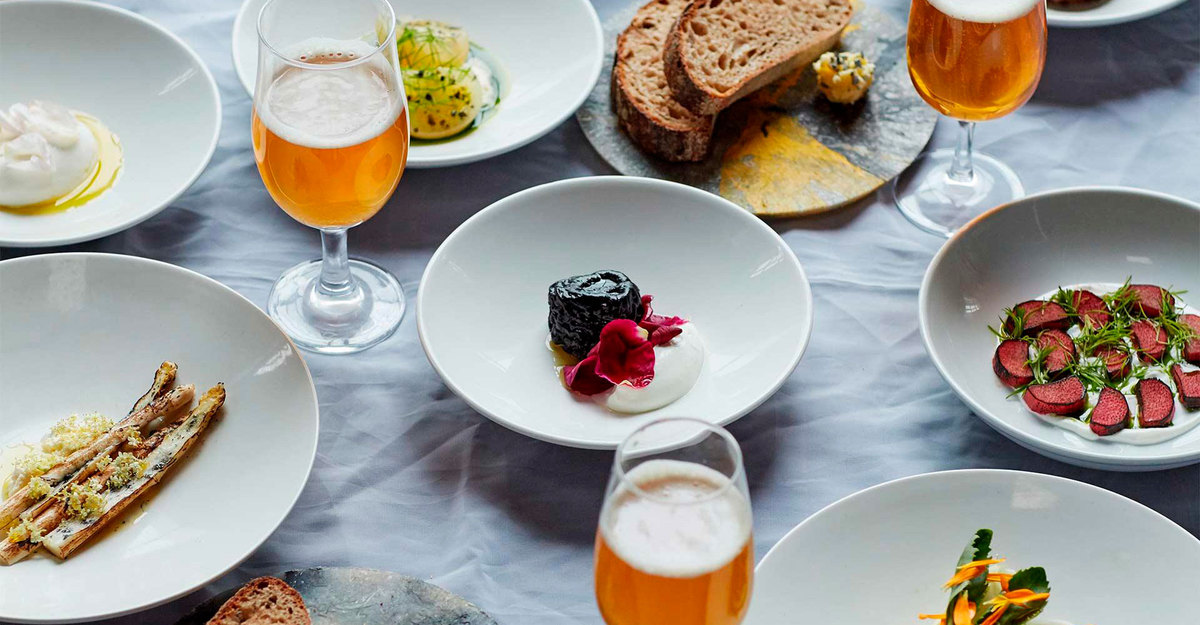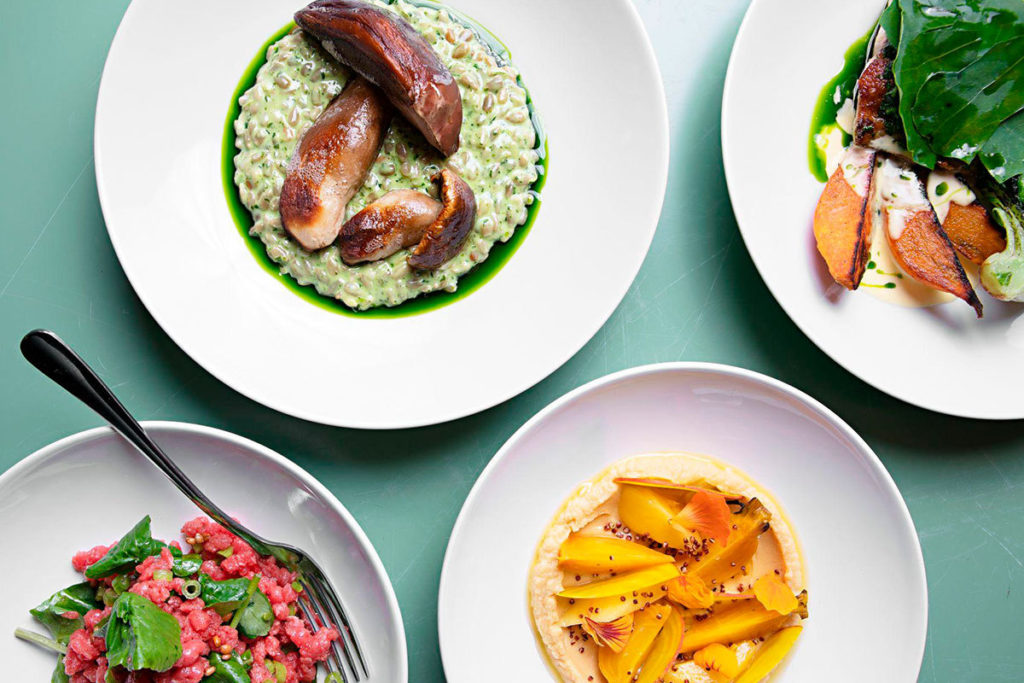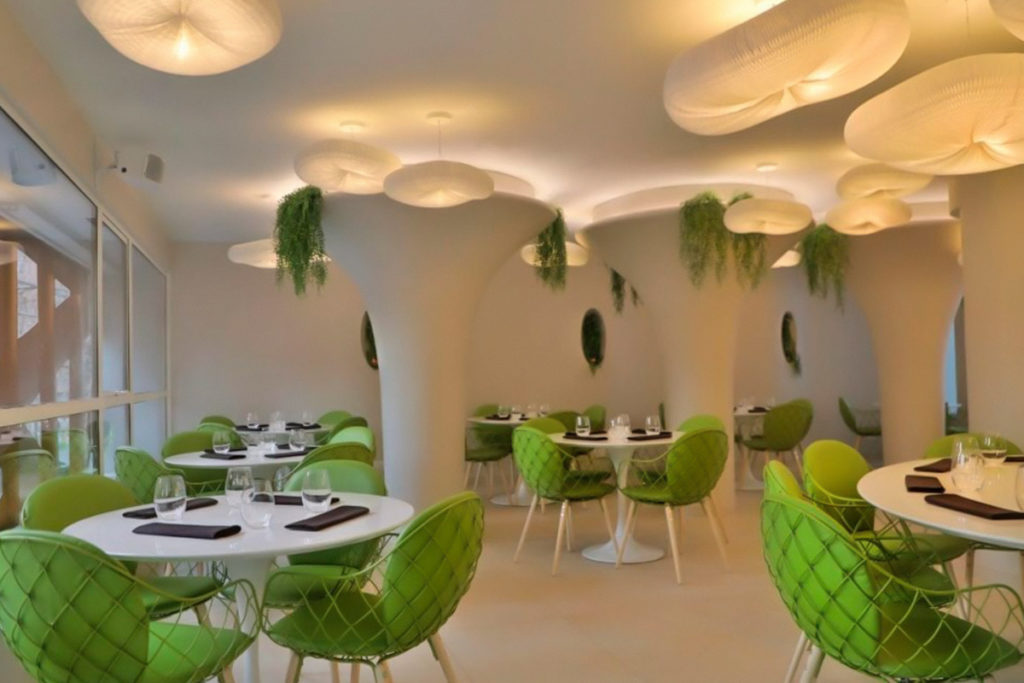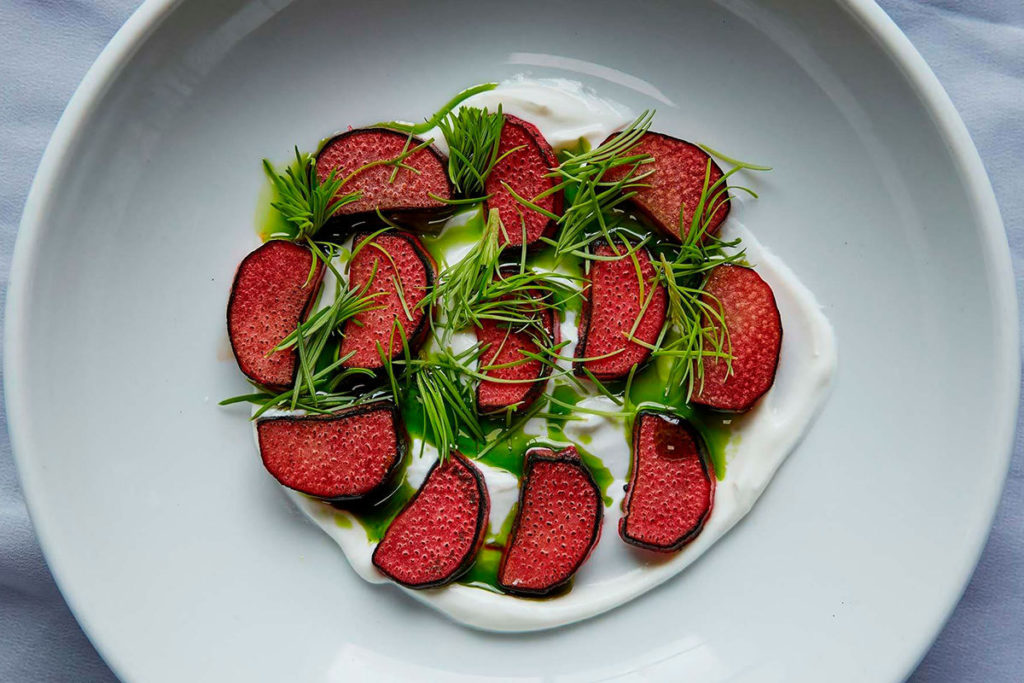3 sustainable restaurants you need to have in your radar


The so-called “best restaurant in the world,” Noma, recently announced that it will close its doors in 2024. René Redzepi, head chef of the restaurant located in Copenhagen, explained the reason for this decision: in his opinion, such a project is “unsustainable.”
Today, haute cuisine and the gastronomic world are questioning whether high-end cuisine can be sustainable. “Economically and emotionally, as an employer and as a human being, it doesn’t work,” Redzepi told the New York Times about the closure of Noma and called for a “complete rethink of the industry.
While eating is a basic necessity, it is also a political act. And considering that consumers are acquiring an increasingly strong environmental awareness and responsibility regarding eating, they also seek to reduce their impact on the planet.
In the case of a restaurant, this means, among other things, taking care of the origin of the food, ideally organic, seasonal, and fair trade, being responsible for waste and its carbon footprint, using renewable energy sources, and taking care of its workers. But not only should the food be sustainable, but the wine list should also support the concept. They should ideally come from producers that follow the same line. Such as Gran Reserva Malbec or Gran Reserva Sauvignon Blanc wines use clean, renewable, and sustainable winemaking processes.
But is it possible? Of course, it is. Beyond the Noma alert, many kitchens worldwide are redirecting their supply chains and striving to offer organic food grown within a relatively close radius for a fair price to present in delicious dishes.

With the idea of going against one of the biggest problems of this industry, food waste, Silo London opened its doors in 2014. So far, it is the only genuinely zero-waste restaurant in London.
Its chef, Douglas McMaster, created his ecosystem in which he does not use landfill as he buys unwrapped, organic products from local producers and, to compost the leftovers, he uses an aerobic digester. Its menu offers a “more primitive” menu, using modern and ancestral techniques without generating waste. At Silo, the wine comes from biodynamic producers.

Olam is the first restaurant accredited as zero waste in Chile and Latin America. It achieved this in 2020 after adhering to the rule of the 5 Rs: reject, reuse, reduce, recycle and reincorporate. With a gastronomic proposal of haute cuisine focused on fish and seafood, offered under the magnificent technique of its chef Sergio Barroso, Olam is also among the 50 Best Ranking restaurants in Latin America.
An urban vegetable garden, recycling, composting thanks to a state-of-the-art machine from Korea, and a wine list that includes sustainable wine labels such as Gran Reserva Carmenère, are some of the initiatives of this kitchen.

Awarded as the most sustainable restaurant in Latin America in 2021 by 50 Best, Corrutela stands out for its gastronomic proposal of vegetable-based dishes and local organic products. Here, waste is composted, plastic is reused, and 40% of the restaurant’s energy comes from solar panels.
The commitment of its young chef César Costa to be zero waste and keep a low carbon footprint, in addition to delighting diners, proves that it is possible to create different cuisines in keeping with the times.
We comply with the highest standards of verified social and environmental performance, transparency, and legal responsibility to balance benefit and purpose.
We adopt an Impact Business Model, creating beneficial links between business, community, and environment.
The Gran Reserva vineyards are an important part of the project to conserve native forest areas and protect local biodiversity. Our native forests have the ability to retain rainwater and control the kind of climate change that results from water shortages.
We take care of 1,432 hectares of protected forests and, on average per vineyard, a total of 105 species of fauna and 48 species of registered flora.
Our effort to preserve nature begins with responsible water consumption. 99% of the water we use comes from surface and subterranean sources.
Our vineyards are drip irrigated, which translates to a 90% efficiency on water consumption, and over the past 3 years, we’ve reduced our water footprint by 10%.
All of our winemaking processes require the use of energy. Our choice to invest in clean, renewable energy reflects our desire to co-create a sustainable planet for the future.
100% of the electricity used to make the wines in the Gran Reserva collection come from renewable sources, including solar energy.
Concha y Toro has been certified under the Wines of Chile Sustainability Code since 2012, which means that our vineyards are officially recognized as sustainable vineyards.
The wines in our Gran Reserva collection are crafted entirely from estate-owned grapes in sustainably managed vineyards.